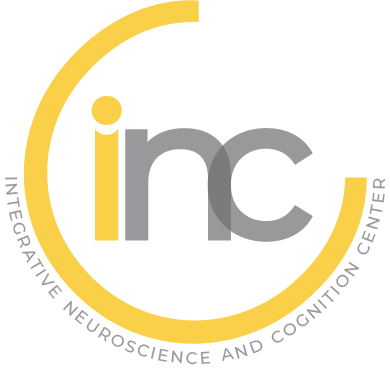Speaker
-
Martine HAUSBERGERDR - INCC UMR 8002 CNRS - Université Paris Cité
Studying cognitive processes in non-verbal subjects, by Martine Hausberger
Studying cognitive processes in non-verbal subjects
Summary
In this rapid overview of my studies along years, I will illustrate how field observations have led me to investigating perception, brain functioning/plasticity and social cognition. I will try and illustrate how “ecological” settings may help developing additional questions about cognitive processes and individual cognitive abilities. My approach has been definitely comparative from birds to humans (infants, TSA children, actors) and also integrative, going from field populational data to neuronal responses. Non-verbal humans share with animal species the inability to use language and therefore to inform us directly about their perceptual and emotional world. In both cases, since behavior is a window on the internal state, observation of behavioral changes is a key for trying and understand not only how the information is processed, but also what their needs can be. Coding and decoding of information has therefore been at the core of the studies I developed with many collaborators from different disciplines on a variety of species, starting with the field study of vocal communication in a songbird (starling) and then a variety of species (dolphins, monkeys, cheetahs, dassies), and developing into looking at brain plasticity and responses in starlings at the neuronal level and horses (EEG) but also at the influences of early experiences and life conditions on social/communicative, perceptual and cognitive skills in a variety of mammal species (horses, pigs, dolphins, cheetahs, monkeys, human infants). I will also evoke how difficulties in decoding cues about the internal state of non-verbal individuals, especially when they experience a different perceptual world from their caretakers, may lead to welfare/rehabilitation issues. I have more lately been particularly interested on how welfare and cognition are interrelated, and how spontaneous models of “psychological disorders” may emerge when considering animal models in their home environment. A special emphasis will be given to attention and brain plasticity as both sources and results of social and non-social environmental influences on behavior.
Short Biography
Martine Hausberger is a DR CNRS who has devoted her career to the study of animal behavior and cognition. After a PhD received at the university of Rennes in 1986, she has spent time in different laboratories around the world and then settled at the ethology department of Rennes, where she has been head of department for 15 years. She has been in charge of projects in many international and interdisciplinary programs (ex: Origins of Man, language and languages, Cognitique…) and has been involved in many scientific and administrative national (CNRS, ANR, ANSES…) and international (ICE, EAAP, EFSA, EEC…) committees Her research is broad, integrative/multilevel and comparative, aiming at finding functional convergences between distant species in terms of social communication, cognition and perception, with a special interest for brain-behavior relationship and plasticity. She also has a special interest in using basic research for responding to societal issues such as animal welfare, human infant care and is very much involved in teaching, in particular in continuous education to caretakers. As an outcome of earlier and long lasting collaborations with some incc members, Martine has recently arrived at INCC where she chose to spend the last year of her CNRS career. She is also currently director of an international research project with Southern Africa (IRP VOCOM).
